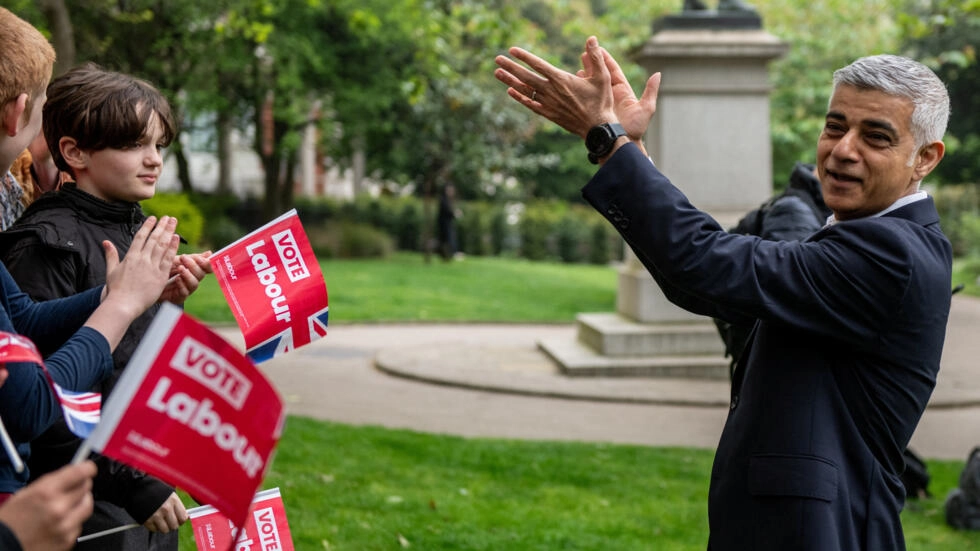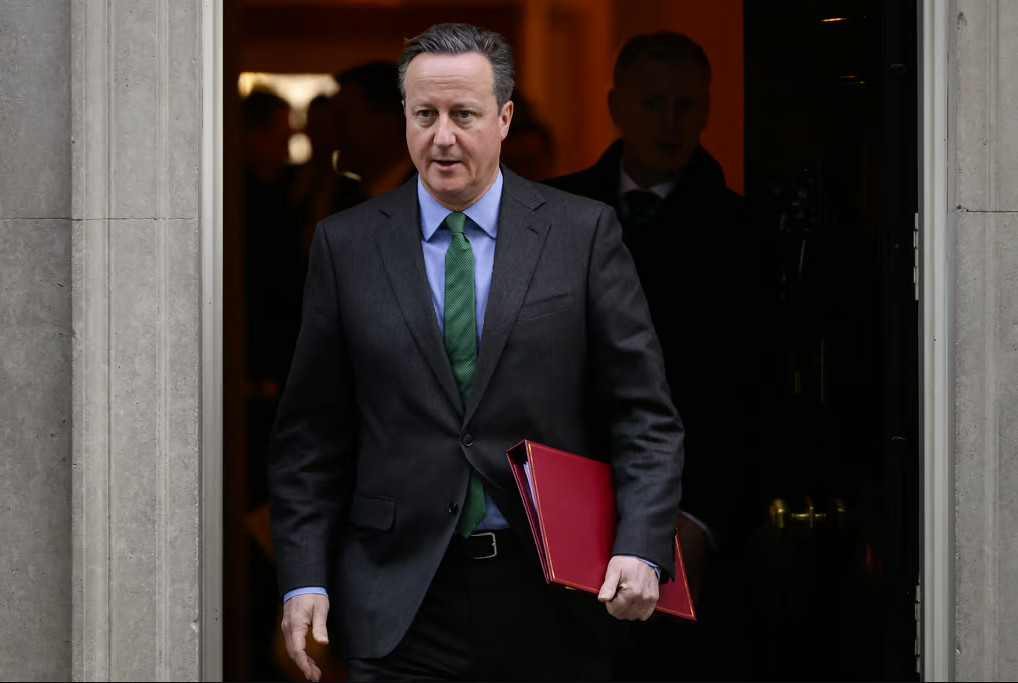This article is more than
4 year oldBritain extends coronavirus lockdown at least 3 more weeks Social Sharing
Britain will extend its coronavirus lockdown for at least three more weeks as a relaxation of the measures would damage both public health and the economy, foreign minister Dominic Raab said on Thursday.
"Relaxing any of the measures currently in place would risk damage to both public health and the economy," he told reporters.
"Based on this advice … the government has decided that the current measures must remain in place for at least the next three weeks."
The move was widely expected. Raab, who is deputizing for a recuperating Boris Johnson, had already made clear before Thursday's series of government meetings that there would be no immediate lifting of the social distancing measures announced on March 23.
Britons are required to stay at home unless they are shopping for basic necessities or meeting medical needs. Citizens are allowed to exercise in public once a day, and can travel to work if they are unable to work from home.
The United Kingdom has the fifth-highest official death toll from COVID-19 among Western countries, after the United States, Italy, Spain and France, although the figure only covers hospital fatalities and the real number is probably much higher.
The U.K.'s hospital death toll from COVID-19 rose by 861 to 13,729 as of 4 p.m. ET on April 15, the health ministry said on Thursday. Broader statistics that include deaths in care homes and in the community suggest the total toll is much larger.
"We think it is too early to make a change," Health Secretary Matt Hancock said earlier in the day. "While we've seen a flattening of the number of cases, and thankfully a flattening of the number of deaths, that hasn't started to come down yet.
"If we just released all the measures now, then this virus would run rampant once again and we can't let that happen."
Johnson is convalescing at the prime minister's country residence from COVID-19 complications that saw him become the first world leader admitted to intensive care due to COVID-19 complications.
The most stringent restrictions in British peacetime history have effectively closed down much of the world economy, and the U.K. is heading toward its deepest depression in three centuries.
Chance for resurgence
As leaders around the world begin to contemplate ways to exit the shutdown, epidemiologists have cautioned that a second wave of the outbreak could endanger the weak and elderly.
Neil Ferguson, a professor of mathematical biology at Imperial College London who advises the government, said Britain would probably have to maintain some level of social distancing until a vaccine for the novel coronavirus is available.
"If we relax measures too much then we will see a resurgence in transmission," he told BBC radio. "If we want to reopen schools, let people get back to work, then we need to keep the transmission down in another manner."
Meanwhile, Prince William on Thursday opened an emergency COVID-19 hospital built in just eight days in the exhibition centre of Britain's second city, Birmingham.
The hospital is the second of seven being constructed around England in response to the novel coronavirus outbreak. It has a 500-bed capacity, which can be increased to 1,500.
William, the Duke of Cambridge, opened the new NHS Nightingale Hospital at the National Exhibition Centre via video link.
8% of March deaths involved coronavirus
Deaths from the novel coronavirus in England and Wales in March were highest among the elderly, those with underlying health conditions and men, according to official data published on Thursday.
Office for National Statistics (ONS) analysis of all deaths registered so far in March found that eight per cent involved coronavirus, making it the third most frequent underlying cause of death after dementia/Alzheimer's disease and coronary heart disease.
Of the 3,912 deaths involving the coronavirus during the month, it was determined to be the underlying cause of death in 86 per cent of cases.
Slightly more than 90 per cent of those who died had at least one pre-existing health condition, with coronary heart disease the most common. The death rate among males from the coronavirus was double that of females, the ONS said.
The data also showed the rate of death increasing significantly in each age group from 55 upwards in males and 65 upwards in females. One in five deaths were in the 80 to 84 years age group, and there no deaths among those aged under 14.
Keywords
Newer articles
<p>Former CNN host discussed ongoing anti-Israel protests on college campuses</p>
Tiffany Haddish Says Common Is the Only Celebrity She's Been 'Entangled' With, Claims He Chased Her for 2 Years
Kendrick Lamar escalates Drake feud on the scathing diss track, Euphoria
Rihanna Is “Keeping it Real Simple” for This Year’s Met Gala
US Congress threatens ICC over Israel arrest warrants
Israel fears Netanyahu's arrest over Gaza war as international court considers warrant
Tiger’s heartbreaking daughter revelation
Doja Cat steps onto red carpet in lingerie
Rwanda must halt ‘support’ for M23 rebels, withdraw troops from DR Congo, says Macron
Tucker Carlson releases interview with Russian philosopher Aleksandr Dugin




